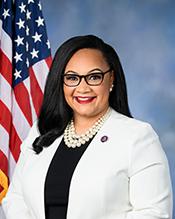0
0
0
Closing the Meal Gap Act of 2023
3/9/2024, 8:15 AM
Summary of Bill HR 3037
Bill 118 HR 3037, also known as the Closing the Meal Gap Act of 2023, aims to address food insecurity in the United States by expanding access to nutritious meals for vulnerable populations. The bill focuses on improving and expanding existing federal nutrition programs, such as the Supplemental Nutrition Assistance Program (SNAP) and the National School Lunch Program.
One key provision of the bill is the establishment of a pilot program to test the effectiveness of providing free meals to all students in high-poverty schools. This program aims to ensure that all students have access to nutritious meals during the school day, regardless of their family's income level.
Additionally, the bill includes provisions to increase funding for food banks and other emergency food assistance programs, as well as initiatives to improve access to fresh and healthy foods in underserved communities. The bill also seeks to address food deserts by incentivizing grocery stores and farmers markets to open in areas with limited access to fresh produce. Overall, the Closing the Meal Gap Act of 2023 is a comprehensive effort to combat food insecurity in the United States by expanding access to nutritious meals for those in need. It aims to improve the health and well-being of vulnerable populations and reduce the prevalence of hunger in our communities.
One key provision of the bill is the establishment of a pilot program to test the effectiveness of providing free meals to all students in high-poverty schools. This program aims to ensure that all students have access to nutritious meals during the school day, regardless of their family's income level.
Additionally, the bill includes provisions to increase funding for food banks and other emergency food assistance programs, as well as initiatives to improve access to fresh and healthy foods in underserved communities. The bill also seeks to address food deserts by incentivizing grocery stores and farmers markets to open in areas with limited access to fresh produce. Overall, the Closing the Meal Gap Act of 2023 is a comprehensive effort to combat food insecurity in the United States by expanding access to nutritious meals for those in need. It aims to improve the health and well-being of vulnerable populations and reduce the prevalence of hunger in our communities.
Read the Full Bill
Current Status of Bill HR 3037
Bill HR 3037 is currently in the status of Bill Introduced since May 2, 2023. Bill HR 3037 was introduced during Congress 118 and was introduced to the House on May 2, 2023. Bill HR 3037's most recent activity was Referred to the Subcommittee on Nutrition, Foreign Agriculture, and Horticulture. as of June 1, 2023
Bipartisan Support of Bill HR 3037
Total Number of Sponsors
1Democrat Sponsors
1Republican Sponsors
0Unaffiliated Sponsors
0Total Number of Cosponsors
196Democrat Cosponsors
196Republican Cosponsors
0Unaffiliated Cosponsors
0Policy Area and Potential Impact of Bill HR 3037
Primary Policy Focus
Agriculture and FoodPotential Impact Areas
- Aging
- Alaska
- Computers and information technology
- Disability and paralysis
- Employment and training programs
- Food assistance and relief
- Hawaii
- Health care costs and insurance
- Income tax deductions
- Poverty and welfare assistance
- Puerto Rico
- U.S. territories and protectorates
Alternate Title(s) of Bill HR 3037
Closing the Meal Gap Act of 2023
Closing the Meal Gap Act of 2023
To amend the Food and Nutrition Act of 2008 to require that supplemental nutrition assistance program benefits be calculated using the value of the low-cost food plan, and for other purposes.
Comments
Sponsors and Cosponsors of HR 3037
Latest Bills
Ensuring VetSuccess On Campus Act of 2025
Bill S 610December 12, 2025
Leech Lake Reservation Restoration Amendments Act of 2025
Bill S 622December 12, 2025
Tribal Forest Protection Act Amendments Act of 2025
Bill S 719December 12, 2025
Tribal Trust Land Homeownership Act of 2025
Bill S 723December 12, 2025
Wounded Knee Massacre Memorial and Sacred Site Act
Bill HR 165December 12, 2025
Miccosukee Reserved Area Amendments Act
Bill HR 504December 12, 2025
PERMIT Act
Bill HR 3898December 12, 2025
Increasing Investor Opportunities Act
Bill HR 3383December 12, 2025
Providing for consideration of the bill (H.R. 2550) to nullify the Executive Order relating to Exclusions from Federal Labor-Management Relations Programs, and for other purposes.
Bill HRES 432December 12, 2025
CLEAR Act
Bill HR 4218December 12, 2025
Closing the Meal Gap Act of 2023
Bill S 1336March 7, 2024





